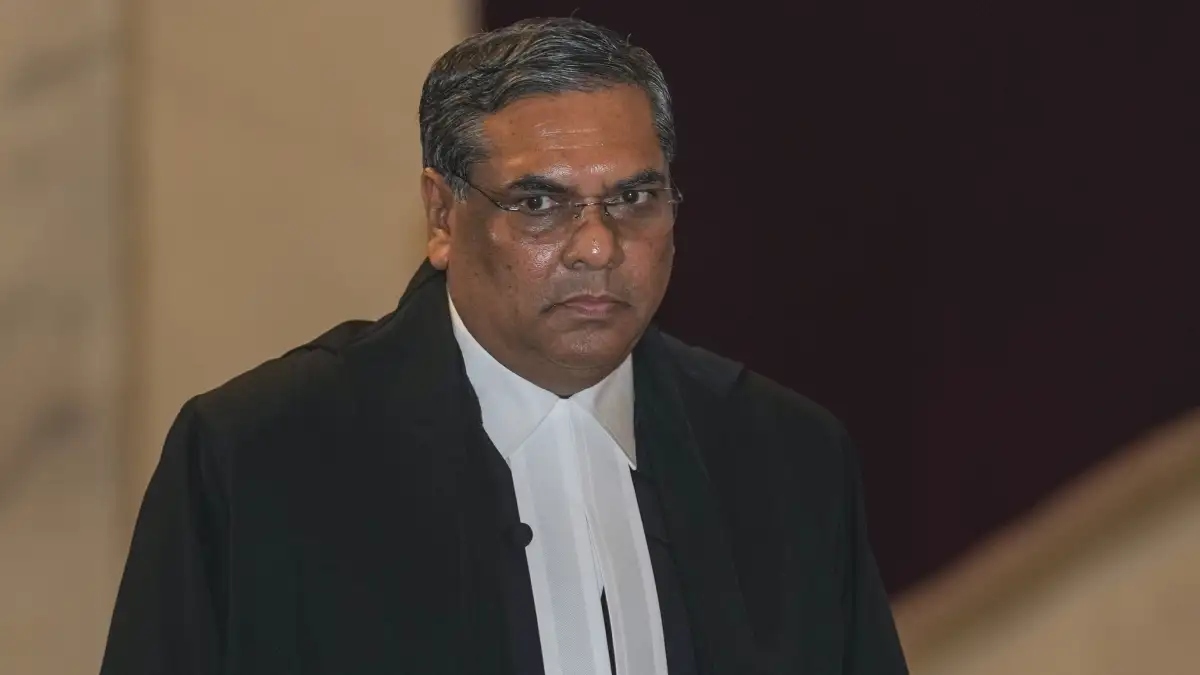 |
|
The recent recusal of Chief Justice of India (CJI) Sanjiv Khanna from hearing petitions challenging the newly amended Election Commission appointment law has sparked considerable debate and raised important questions regarding the independence of the judiciary and the integrity of the electoral process in India. The petitions, filed by various petitioners including Congress leader Jaya Thakur, the Association for Democratic Reforms (ADR), and the People’s Union for Civil Liberties (PUCL), directly challenge the validity of Sections 7 and 8 of the Chief Election Commissioner and Other Election Commissioners (Appointment, Conditions of Service, and Term of Office) Act, 2023. These sections fundamentally alter the composition of the panel responsible for appointing the Chief Election Commissioner (CEC) and Election Commissioners (ECs), removing the CJI from the selection process and instead vesting the power in the hands of the Prime Minister, a Union Cabinet Minister, and the Leader of the Opposition (or the leader of the largest opposition party in the Lok Sabha). This change represents a significant departure from the previous system, which included the CJI to ensure impartiality and safeguard the independence of the Election Commission.
The petitioners' primary argument centers on the crucial role the CJI played in ensuring the impartiality and independence of the Election Commission. They contend that the exclusion of the CJI from the appointment panel undermines the Election Commission's autonomy and opens the door to potential political interference in the selection of individuals responsible for overseeing elections. This concern is further amplified by the petitioners' assertion that the 2023 law directly contradicts a previous Supreme Court ruling, which had recommended the CJI's inclusion in the selection process precisely to protect the commission’s independence from undue political influence. The petitioners fear that the new law could lead to the appointment of biased individuals, potentially compromising the fairness and integrity of future elections, a cornerstone of a healthy democracy. The removal of a neutral and independent figure like the CJI raises serious questions about the government's commitment to upholding the principles of free and fair elections.
CJI Khanna's recusal, while seemingly procedural, adds another layer of complexity to the already contentious issue. While senior lawyers representing the petitioners expressed no objection to the CJI continuing to hear the case, the CJI's decision to recuse himself highlights the potential for perceived conflicts of interest, even in the absence of actual bias. The case has now been adjourned until after the winter recess, starting January 6, 2025, to be heard by a new bench. This delay underscores the significance of the legal challenges and the need for a careful and impartial consideration of the arguments presented by the petitioners. The Union government and the Election Commission have been directed to respond to the challenges. The outcome of this case will have far-reaching consequences for the future composition and independence of the Election Commission, potentially shaping the landscape of Indian elections for years to come. The debate extends beyond the legal technicalities, touching upon broader questions of the balance of power between the judiciary, the executive, and the electoral body, and the ultimate protection of democratic values.
The implications of this legal challenge extend far beyond the immediate concern of the Election Commission's composition. The case speaks to a larger discourse on the delicate balance of power within a democratic system and the importance of institutional independence. The judiciary's role in safeguarding the integrity of other crucial institutions is a recurring theme in many democracies. Similar debates regarding the independence of regulatory bodies and the potential for political influence are prevalent across the globe. The case also highlights the ongoing tension between the legislative and judicial branches of government, with the judiciary acting as a check on the legislative power. The argument presented by the petitioners suggests that the amendment to the Election Commission appointment law represents an encroachment upon the judiciary's role in upholding the principles of fairness and impartiality. The eventual decision on the matter will set a significant precedent, impacting not only the Election Commission but also influencing future debates on the independence and autonomy of other crucial state institutions.
Furthermore, the timing of this legal challenge and the subsequent recusal of the CJI adds another layer of analysis. The case coincides with a period of significant political activity in India, fueling speculation about the underlying motivations and the potential implications of the government's actions. Observers will be keenly watching the proceedings after the winter recess, scrutinizing the composition of the new bench and the arguments presented by all parties involved. The transparency of the process and the impartiality of the eventual decision will be crucial in maintaining public trust in the judicial system and the integrity of the electoral process. The ultimate outcome will significantly shape the discourse surrounding the independence of crucial institutions within the Indian democratic framework, potentially setting the stage for future legal challenges and influencing the political landscape for years to come. The continued discussion on this issue highlights the critical need for robust mechanisms to ensure the independence of key institutions in a functioning democracy.
Source: CJI Sanjiv Khanna recuses himself from hearing petitions on Election Commission Appointment Law
